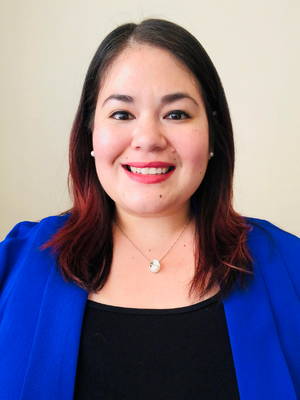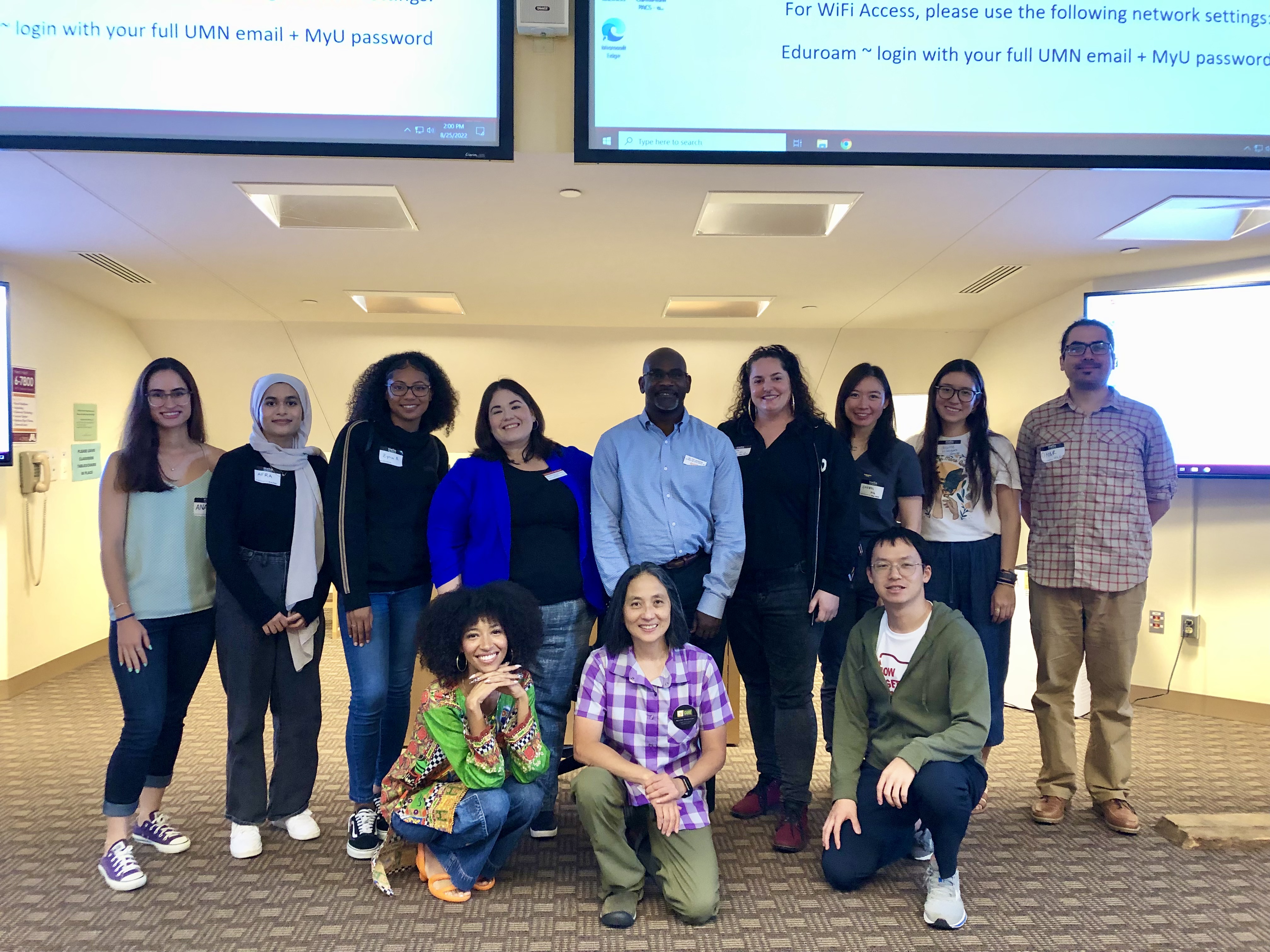Turning a vision into reality
CVM’s first DEI director uses conversation and collaboration to guide current and future diversity initiatives
CVM’s first DEI director uses conversation and collaboration to guide current and future diversity initiatives
The College of Veterinary Medicine Diversity and Inclusion Committee. Photo by Kersten Warren.
As the first director of diversity, equity, and inclusion for the College of Veterinary Medicine (CVM), Elizabeth Martinez-Podolsky didn’t have the typical shoes of a predecessor to fill.
Instead, her journey in the role began with building upon a foundation of work started by members of the CVM community in pursuit of more diverse and inclusive environments.
Since her May 2021 start date, Martinez-Podolsky has been connecting with community members and gathering information to help aid her in crafting a vision for diversity, equity, and inclusion (DEI) at the College.

“I am tasked to help begin to steer a ship in an equitable direction, which is no easy feat,” she says. “I am working to strengthen and create new spaces to encourage the college to think about how DEI can be a sustainable part of our everyday operations.”
So far, work on the vision has yielded a list of DEI priorities, new programming and training, and other initiatives that have put a larger focus on promoting inclusion at the College while continuing to build on work done by its community.
To better understand CVM’s current diversity initiatives, part of Martinez-Podolsky’s initial work included conducting an environmental assessment to identify what efforts are working and what could be improved. That included bringing folks into the conversation who may have had questions or uncertainties about expanding diversity efforts at CVM.
“I know many other DEI directors, and I can't say that we are always welcome. I know how lucky I am to come into a space that is ready to walk forward together,” she says.
A yearlong listening initiative connected Martinez-Podolsky to CVM working groups and leaders and provided an opportunity to highlight and shape DEI priorities identified by the College, which include an enhanced collection and use of student and employee demographic data and the creation and implementation of diversity training for faculty and staff.
Another priority is offering and connecting CVM community members to DEI programming—both existing and new initiatives. The College’s Administrative Council for Diversity is a space where DEI ethics and policy are being discussed to inform college processes, the Diversity and Inclusion Committee is working to maintain opportunities for the College to acquire training and skills to be competent and equitable veterinary professionals, and the DEI Faculty Collective will be working to enhance the veterinary curriculum.

New programming that has launched in the past year includes a learning series focused on topics of gender equity in science and anti-racism, the creation of a mentorship program to support students of color at CVM from admissions to graduation, and training for College leaders in the areas of tribal relations and intercultural development inventory.
And there is more on the horizon. CVM will host the 2024 Iverson Bell Regional Diversity Summit. The summit invites representatives from all Midwestern colleges of veterinary medicine to discuss diversity, equity, and inclusion present in the veterinary curriculum, practice, and research.
Martinez-Podolsky says she looks forward to showcasing the College’s DEI organizations, its commitment to an inclusive veterinary curriculum, and its partnerships with vulnerable communities across the state and the world at the summit.
All of these efforts, opportunities, and ideas to bolster DEI are part of a vision that will take time to achieve.
“I know there is a long road ahead, but I go one pace at a time knowing that we are making it easier for those to come,” Martinez-Podolsky says. “I'm excited to know that I am not alone in this work and could not have completed this last year without the assistance of many individuals in these working groups.”
The 2022-2023 school year marks the 75th anniversary of the University of Minnesota College of Veterinary Medicine.
Join us as we revisit milestones and innovations in the College's history and look forward to our future success in advancing veterinary medicine through teaching, research, and service.